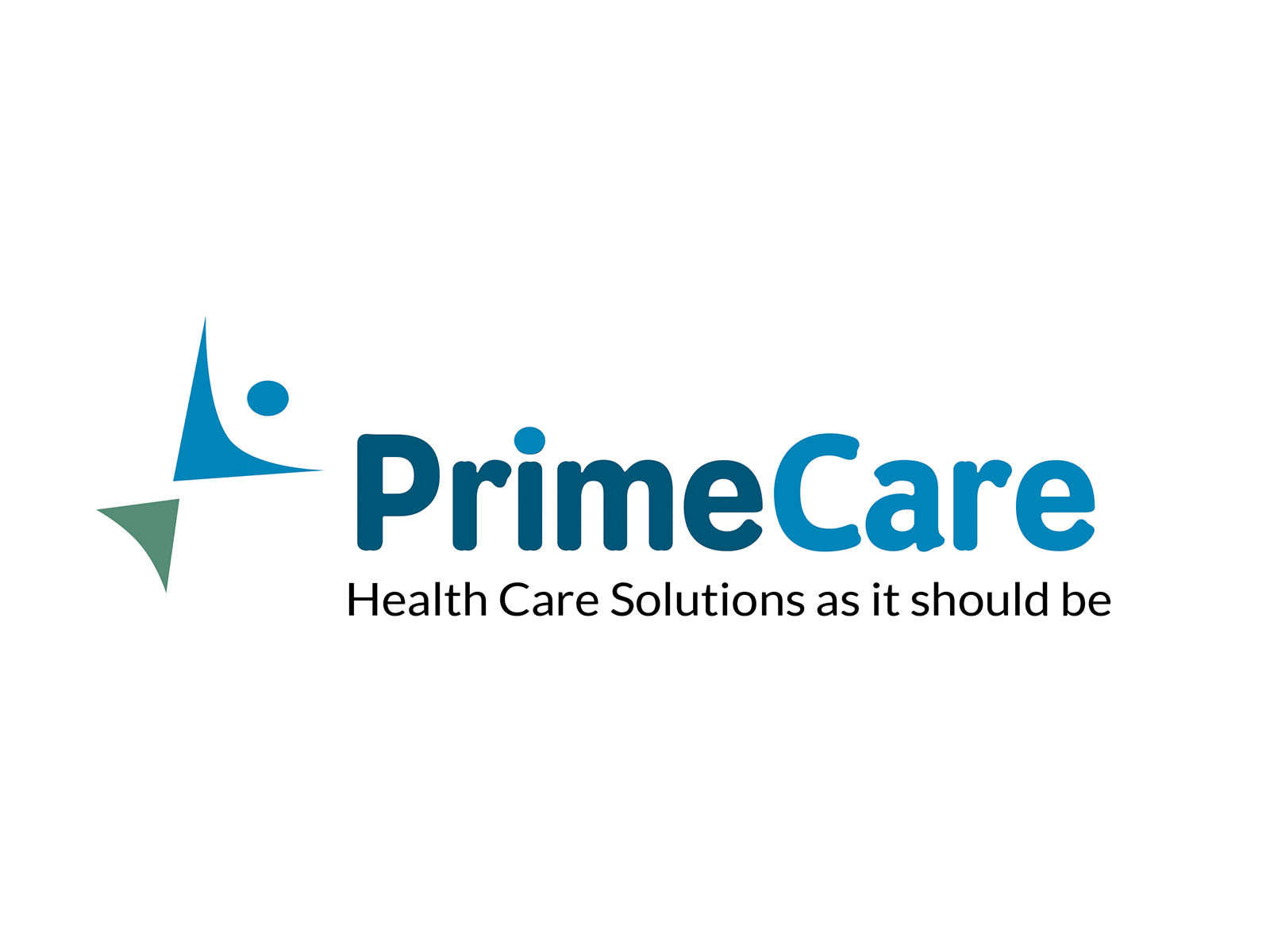Description

Hushmail

PrimeCare
Comprehensive Overview: Hushmail vs PrimeCare
Hushmail and PrimeCare are two distinct products that serve different purposes, so let's break down each one in terms of their primary functions, target markets, market share, user base, and key differentiating factors.
Hushmail
a) Primary Functions and Target Markets
- Primary Functions: Hushmail is primarily an encrypted email service ensuring privacy and security for users. It offers secure webmail, email aliases, and a web-based interface, along with optional two-factor authentication. Hushmail also provides services like secure forms, designed for collecting data safely.
- Target Markets: The target market for Hushmail includes individuals and businesses seeking enhanced privacy and security in their email communications. Specific sectors include healthcare, legal, and any industry requiring compliance with privacy regulations like HIPAA.
b) Market Share and User Base
- Market Share: Hushmail occupies a niche market focused on security-conscious users. Its market share is relatively small compared to mainstream email providers like Gmail or Outlook.
- User Base: The user base primarily consists of privacy-focused individuals, small businesses, and professionals in compliance-heavy industries.
c) Key Differentiating Factors
- Security and Encryption: Hushmail is distinguished by its strong focus on email encryption and privacy.
- Compliance: Specializes in compliance with privacy regulations (e.g., HIPAA for healthcare).
- Ease of Use: Offers a user-friendly interface for those requiring secure communications.
PrimeCare
a) Primary Functions and Target Markets
- Primary Functions: PrimeCare is not a widely recognized product; however, assuming it refers to a healthcare-related service or software such as patient management systems or healthcare solutions, its primary functions could include managing patient records, appointments, billing, and facilitating communication within healthcare settings.
- Target Markets: The target markets for PrimeCare would likely be healthcare providers, including hospitals, clinics, and private practices, especially those looking for integrated health management solutions.
b) Market Share and User Base
- Market Share: If PrimeCare is part of the competitive healthcare software industry, it may face competition from established players like Epic, Cerner, or smaller SaaS healthcare solutions.
- User Base: The user base is likely comprised of healthcare facilities looking to streamline operations and ensure regulatory compliance.
c) Key Differentiating Factors
- Integration: PrimeCare might offer integration with other healthcare systems and devices.
- Specialization: May focus on specific aspects of healthcare management, giving it an edge in niche areas.
- User Experience: Can provide intuitive interfaces for healthcare professionals.
Comparative Overview
While Hushmail and PrimeCare serve very different markets and functions, the commonality lies in their focus on niche markets that require specialized features—Hushmail in secure communications, and PrimeCare potentially in healthcare management. Hushmail's differentiation is clear in its commitment to security, while PrimeCare's differentiation likely depends on its ability to integrate with existing healthcare systems and improve operational efficiencies.
In terms of market share and user base, neither product likely commands a significant share when compared to leaders in their respective larger categories, primarily due to their niche focus; they are more oriented toward fulfilling specific user needs rather than mass-market appeal.
Contact Info

Year founded :
1999
+1 604-685-6937
Not Available
Canada
http://www.linkedin.com/company/hushmail

Year founded :
1985
Not Available
Not Available
United Kingdom
http://www.linkedin.com/company/allied-primecare
Feature Similarity Breakdown: Hushmail, PrimeCare
Hushmail and PrimeCare are two different products, so providing a feature similarity breakdown can be a bit challenging without specific context. Hushmail is a well-known secure email service, while "PrimeCare" could refer to a range of services or products depending on the industry (such as healthcare management software, etc.). For this answer, I will assume PrimeCare relates to a healthcare management or email service, given the contexts in which these names often appear. Here’s a generic breakdown based on these assumptions:
a) Core Features in Common
Assuming PrimeCare has functionalities similar to secure communication/email services in the healthcare context, the following features may be common between Hushmail and PrimeCare:
-
Security and Encryption:
- Both services likely emphasize security, with encryption for data protection, especially when handling sensitive information like emails and patient data.
-
HIPAA Compliance:
- They may both offer features ensuring compliance with healthcare privacy regulations such as HIPAA, essential for protecting patient information.
-
User Authentication:
- Features like two-factor authentication and secure login processes to protect user accounts.
-
Email Management:
- Basic email functionalities such as composing, sending, receiving, and organizing messages.
b) User Interface Comparison
Hushmail:
- Hushmail typically offers a clean, minimalistic interface focusing on ease of use and clarity. The design tends to prioritize secure communication features with straightforward navigation.
PrimeCare (Assumed to be a healthcare service/interface):
-
If PrimeCare is healthcare-oriented, its interface might be more complex and geared towards integrating various aspects of patient management, with dashboards offering quick access to critical patient data, scheduling, billing, and perhaps even telehealth functionalities.
-
Compared to Hushmail, PrimeCare's interface might be more information-dense, and possibly less focused on email-like communication but more on comprehensive patient data management and secure messaging.
c) Unique Features
Hushmail:
- Specific to secure emailing, it offers strong email encryption, forms for collecting secure information, and branded email addresses, distinguishing itself as a privacy-focused email service.
- Its simplicity and focus purely on secure communication set it apart from more comprehensive service suites.
PrimeCare:
- If it is indeed related to healthcare management, its unique features might include electronic health record (EHR) integration, patient scheduling, billing and insurance claim processing, and telehealth services.
- Such comprehensive patient management functionalities make PrimeCare unique in its field if compared with a service like Hushmail.
Without precise context on what PrimeCare refers to beyond its name, this breakdown is based on typical usage scenarios and known functionalities in the market for secure communication and healthcare management software. If PrimeCare refers to something specific outside of these assumptions, please provide more details for a more tailored comparison.
Features

Not Available

Not Available
Best Fit Use Cases: Hushmail, PrimeCare
Hushmail and PrimeCare are products that cater to different needs, particularly focusing on secure communications within specific industries. Here’s how they best fit within various use cases:
a) For what types of businesses or projects is Hushmail the best choice?
Hushmail is predominantly used for secure email communication and form creation. It is ideal for businesses and projects that require stringent privacy and security measures, particularly those that need to comply with regulations like HIPAA. The best fit use cases for Hushmail include:
-
Healthcare Providers: Doctors, therapists, and other healthcare professionals use Hushmail to securely communicate with patients and other healthcare entities, ensuring compliance with privacy laws like HIPAA.
-
Law Firms: Legal practices can use Hushmail to exchange sensitive information with clients, maintaining confidentiality and security.
-
Financial Services: Financial consultants and accountants may utilize Hushmail for secure client communication, protecting financial data and personal information.
-
Small to Medium-Sized Enterprises (SMEs): Companies that don’t have a large IT infrastructure and need an easy-to-implement secure communication solution.
b) In what scenarios would PrimeCare be the preferred option?
PrimeCare is a product designed specifically for the healthcare industry, addressing their unique needs around secure communication and data exchange. Scenarios where PrimeCare is the preferred option include:
-
Integrated Healthcare Systems: Organizations that need to manage internal and patient communications across various departments and facilities in a secure manner.
-
Telemedicine Providers: Companies that offer remote healthcare services require secure systems for communicating sensitive medical information between practitioners and patients.
-
Large Healthcare Organizations: Hospitals, clinics, and care facilities that need a robust solution for handling large volumes of secure emails and data exchanges.
d) How do these products cater to different industry verticals or company sizes?
-
Industry Vertical:
-
Hushmail is versatile across different industries looking for enhanced email security, but it shines in healthcare, legal, and financial services due to its compliance with privacy regulations and focus on confidentiality.
-
PrimeCare is specifically tailored for the healthcare industry, incorporating features that meet the complex needs of healthcare providers dealing with patient data, scheduling, and other secure communication requirements.
-
-
Company Size:
-
Hushmail is suitable for small to medium-sized businesses, providing an easy setup and management with a focus on secure communication, which is vital across many professional services sectors.
-
PrimeCare is more suited to large healthcare institutions, offering the scalability and specific features needed to handle extensive and complex communication networks within the healthcare sector.
-
In essence, while both Hushmail and PrimeCare offer solutions for secure communications, Hushmail provides broader applications across various industries, whereas PrimeCare delivers specialized tools for the healthcare industry, catering specifically to its regulatory and operational demands.
Pricing

Pricing Not Available

Pricing Not Available
Metrics History
Metrics History
Comparing teamSize across companies
Conclusion & Final Verdict: Hushmail vs PrimeCare
To provide a conclusion and final verdict for Hushmail and PrimeCare, it is important to assess these products based on various criteria such as features, cost, security, usability, and customer support. Here’s a comprehensive analysis:
Overall Value
a) Best Overall Value: The determination of "best overall value" depends on user needs and context. Hushmail is generally known for its secure email communication and is well-suited for privacy-conscious users, particularly in healthcare and business settings. PrimeCare, meanwhile, typically focuses on comprehensive healthcare services management, which may appeal more to healthcare professionals or clinics looking for robust patient management solutions.
Considering all factors, if secure communication is the primary concern, Hushmail may offer better value due to its focus on encryption and privacy. However, if operational efficiency in healthcare practice management is the priority, PrimeCare might be the preferable choice due to its broader suite of healthcare management tools.
Pros and Cons
b) Pros and Cons:
Hushmail:
- Pros:
- Strong security features with end-to-end encryption.
- Compliance with privacy regulations like HIPAA, appealing to healthcare professionals.
- User-friendly interface with integration capabilities.
- Cons:
- Can be more expensive than regular email services.
- May have limitations in terms of features compared to comprehensive healthcare management solutions.
- Less suitable for users who need broader healthcare management functionalities.
PrimeCare:
- Pros:
- Comprehensive feature set for healthcare management, including appointment scheduling, billing, and patient records.
- Tailored specifically for healthcare providers, offering integrated services.
- Potentially enhances overall operational efficiency.
- Cons:
- May lack robust email security features that services like Hushmail offer.
- Could be overwhelming for users who only need simple email communication tools.
- Sometimes more costly if only minimal features are used by small practices.
Recommendations
c) Recommendations: For users trying to decide between Hushmail and PrimeCare, the decision should be guided by specific needs:
-
Choose Hushmail if:
- Security and privacy are your paramount concerns.
- You need a platform that is compliant with privacy regulations like HIPAA.
- Your primary focus is secure communication, such as within legal, healthcare, or other privacy-sensitive industries.
-
Choose PrimeCare if:
- You need a comprehensive suite for managing healthcare operations.
- You are running a healthcare practice seeking an integrated platform for patient management.
- Operational efficiency and management features are more critical than communication security alone.
Ultimately, users should consider a trial or demo of both products to better understand how they align with their specific needs and operational requirements.
Add to compare
Add similar companies




